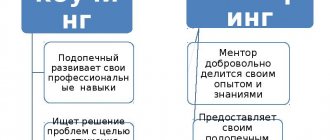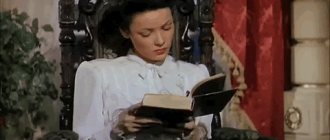The essence of the problem of attention. Inattention when reading can be expressed in the fact that when you read, you have to return to the previous sentence, since you mechanically read it, but did not understand the meaning. The more often you return, the lower your speed. Therefore, the first step to increasing your reading speed is to work with your attention and concentration when reading.
Attention and interest.
Often you yourself may have noticed that in the first minutes of reading the process goes much slower than half an hour after the start. You seem to be “accelerating”. In fact, your attention level increases. Especially if the book is interesting and you are captivated by the plot. The more interesting a book is to you, the greater your attention and the faster you read.
- But is it possible to make sure that attention is concentrated on the text, even not the most interesting, in the first minutes, which will undoubtedly increase the reading speed?
- Can! Try the following exercises and suggestions.
Recommendation 1.1. Games
Try to always find something interesting in your routine, turning any action into a game. This is what good parents do who want their child to do some boring work. Games are characteristic of many living beings; it is embedded in us at the genetic level.
Excitement is important in the game!
Excitement (French hasard) - passion, enthusiasm, passion, excessive ardor. (Great Soviet Encyclopedia). To create a gambling game based on the upcoming reading process, you must decide on the rules of this game and establish clear conditions for winning this game. If this is difficult for you, you can use the examples and recommendations below.
Competitiveness. For example, if you are reading a textbook before an exam, you can have a competition with your friends to see who can read the textbook the fastest or who can answer the most questions from the textbook that you can ask each other. Competitiveness in the educational process is the main weapon of a teacher (I know from my own experience), which can increase interest in the learning process. The vast majority of people are passionate about trying to “be better” than their opponent. Therefore, individual lessons are not as effective as group lessons. And in reading you can find your opponent!
Personal records. Another factor that creates excitement when reading can be the struggle with oneself to achieve a certain result. For example, when reading a book, you can measure your reading speed, say the number of pages per hour, then try to beat your own record. Personal records can be set in speed, in the number of pages, in the number of books, in the material mastered, and much more.
Tips on how to start reading more
- Record every book you read. This will make it easier to track your progress and understand how much more you should be reading. By tracking how much you read in a month or a year, you will understand that there is not so much and motivation and even a kind of excitement will appear to increase this number. It is convenient to use reading trackers for this.
- Set a goal for the year. Everyone has their own limit. For some, 20 books a year is an achievement, while others consider 150 books a year to be insufficient. The main thing is to determine what you are aiming for. Having a goal in itself motivates action, and it is also important to correctly formulate the goal and write it down.
- Don't waste time and money on nonsense, read only worthwhile works. Selecting reading material for leisure is a very important and scrupulous process. If you don’t choose carefully, several days of your life will simply be lost. Always allow enough time to search for a good piece. View reviews, ratings, get acquainted with annotations and opinions of other authors and critics. If the first pages of a book don't pull you in, then it might not be to your taste at all. Write down a list of books you plan to read in your planner or notes on your phone, and when you go to the bookstore, don't forget about it.
- Buy a book. I mean a paper book, with a cover and other goodies. Reading a paper book is a special pleasure. They smell nice and there is no risk of being distracted by a message popping up from the messenger. But in addition, books made of flesh have a beneficial effect on the cognitive functions of the brain, since reading trains fine motor skills.
- Set yourself a daily minimum. Let it be 20 pages a day, 50, or even 100. How long can it take to read 100 pages? If desired, in just a couple of hours. But this is already depends on your goal for the year. You need to regularly increase this minimum in order to read more and more books.
- Make a list of books to read. If we are talking about non-fiction books, then it is useful to divide the list into categories related to areas in which you want to deepen your knowledge. You can be inspired by the advice of famous successful people in order to learn something interesting and new for yourself by comparing it with the person who recommended this work. Place the list somewhere conspicuous so that the question “What should I read?” disappeared immediately.
- Use a psychological trick. Imagine if there was an apocalypse in a few months, you would die, what books would you read then? This will help determine your true desires , and not what you think you should read.
- Set aside dedicated time in your schedule for reading. This will help you organize your time without sacrificing reading; rather, you will have to adjust other items so that you always have enough for books. Consider it as unshakable as going to the dentist.
- Buy and collect paper books, even if you don’t have time for them yet. They won’t run away anywhere, and will simply silently wait in the wings on the shelves. You can get into the habit of buying a book every month.
- When you need to read a book, but the process doesn’t go well. Sit with a book for a few minutes, doing nothing, with the cover closed. At some point, your hands will reach out to open the hostile book and read it.
- Read consciously. Social networks are filled with reposts of texts with enticing headlines. The number of tabs in your browser multiplies, and your ability to focus on information weakens. You read 50 articles a day, without really delving into anything, getting only a momentary thrill, and practically nothing remains in your head. To benefit from reading, you need to read according to the list. And it’s better to spend time on books that you chose consciously, rather than absorb tons of information garbage that the media shoves down your throat.
- Add some fun. Read what brings you pleasure. If a person says that he doesn’t like to read, it means he simply hasn’t found his book or author yet. Read books related to topics that interest you.
- Set a deadline for reading the book. Decide to yourself how soon you want to finish this book. And knowing a certain number, you are less likely to succumb to procrastination. It will be like a small promise made to yourself. And promises cannot be broken, even to yourself.
- Go to the library. If you need a quiet atmosphere for reading, almost all libraries have reading rooms. And if you take the book with you, libraries usually have a return period, often about two weeks. Try to read it, otherwise it will be a pity to return the book unread, or you will feel embarrassed in front of the library staff for why you are renewing the book. After all, two weeks was more than enough to read it.
- Make a bet or state your goal in some way. For example, “If I don’t finish reading 100 books by the end of the year, I’ll donate my favorite book to the library.” The Smartprogress service has such functionality as , which will help you achieve your goals.
- Organize your time. Think about what useless activities you can take a couple of extra hours of reading from. It is unlikely that scrolling through a feed or watching TV can be considered a fruitful pastime, which means this time can be given to reading.
- If you have very little time, read stories. They are easy to read in one sitting and are not very energy intensive. Chekhov, O. Henry, Edgar Allan Poe, Murakami, Twain...
- Start reading the next book on the list as soon as you finish reading the previous one. Don't take breaks between books. You need to read at least a couple of pages on the same day, so that the next day you already have the feeling of starting something, but not finishing it.
- Bonus motivation. Your surroundings may be inspired by your successes and start reading too; you will become a good example for them. This is both pleasant and useful. Especially considering how few people read books these days.
- Give yourself an incentive to read. List the advantages of reading books, what they can give you if you start devoting more time and effort to this activity. You will become more literate, it will be more interesting to have conversations with you, and you will improve your erudition. Just imagine for a moment what success you will achieve and how much new knowledge you will gain if you read 1000 quality books in the next few years. Keep a diary of your achievements and record your reading progress.
- Organize yourself a comfortable place to read. Reading in bed is not a good idea, because the bed is perceived by our brain as a resting place, which means there is a high risk that this reading will not be productive for you. Prefer a chair at the table or a sofa.
- Lighting is important. Don't jeopardize your eyesight by reading books in poor light. Moreover, good consecration will not allow you to nod off, losing the meaning of what you read.
- Read in a comfortable position. If you hunch over and generally position your body in an incomprehensible way, you won’t be able to read for long. And even if you can, your shoulders, back and neck are unlikely to thank you and may even lead to problems with blood circulation and headaches.
- Use special glasses when using the computer. They prevent bright light from irritating your eyes. Let them always be in view of the monitor so that you can reduce fatigue and preserve your eyesight.
- Take breaks every half hour. Try to alternate reading with physical exercise. In this case, the brain will rest, and the body will work a little to stay in good shape longer. Turn off all unnecessary thoughts, breathe carefully and correctly to saturate your brain with oxygen. Even just getting up from a chair from time to time will not be without benefits.
- Give your eyes a rest periodically. If you feel that your eyes are tired, do the following exercise: rub your palms and close your eyes so as to ensure complete darkness. Peer at a point in the middle of the blackness, as if trying to see something through this curtain. This will help relieve eye tension.
- Learn to speed read. At some point you will be able to tell good books from bad ones. Therefore, it is worth taking the time to learn how to speed read so that you can read as much as possible. The fast reading technique will allow you to understand most of the information at high speed. Move your finger across the book
- Cut off the left and right 15% of the page
- Read with 80% comprehension
Recommendation 1.2. Motivation
Try to motivate yourself that the material you are reading can be useful to you. Try to list all the possible benefits that reading the text will give you. They may not be significant, but the main thing is to find them. Then visualize it, daydream, and start reading.
Even if this is a boring textbook that you need to read to prepare for an exam, you should understand that this knowledge will be useful to you and, in the end, a good grade in the subject will at least make your mother happy.
Reading whole words
The Spritz app also aims to develop peripheral vision. For training, only one line is used here, on which words with a red highlighted letter in the middle appear at different speeds. In this way, you can learn to perceive words without reading them from beginning to end, but all at once. This allows you to save up to 80% of the time that would normally be spent on eye movements and increase your reading speed to 500–1000 words per minute.
On the official website of the application there is a demo version of Spritz, including in Russian. You can choose a speed from 250 to 600 words per minute and other languages: English, German, Spanish and French. In the future, the developers plan to create not only a version for websites and smartphones, but also an option for use within the interface of electronic glasses, smart watches and other compact devices, because the application requires only one line to work.
How to build communications within a team and manage it remotely? What unspoken rules of digital etiquette should you follow? Why is work-life balance disrupted and how to restore it? In the FreeBusiness project you will find all the necessary materials about effective management at a distance, tips on organizing remote work for managers and other employees.
Exercise 1.3. External stimuli
Some people have one very important ability: they can do something when there is noise and turmoil around them. Often this is a matter of habit, for example, when a person lives in a small apartment or dormitory, and he has to adapt to difficult conditions and be able to study without paying attention to anything.
Difficult conditions make a person more attentive, teach him to disconnect from external stimuli and do what he needs.
Try to artificially create difficult conditions for yourself, try to concentrate on reading while you are listening to music, when people are walking around. Go outside in the park on a day off and read on a bench, trying not to pay attention to others and passers-by.
Mixing genres
Everyone has their favorite genres. However, if you delve too deeply into detective novels or business literature, you will become oversaturated. Even great books will cease to please.
In this case, it is useful to change the genre. Stir books like cocktail ingredients. After non-fiction, read a volume of Russian classics. After that - science fiction, and then a book on negotiations.
The ability to alternate literary genres is a great way to stay on your toes and develop your reading horizons.
Exercise 1.4. A state of trance
The state of trance , according to the observations of hypnosis specialist M. Erickson, is characterized by increased attention, the ability not to react to external stimuli, as well as the ability to ignore signals from some sensory organs. Thus, in a state of trance, a person can take a position that is uncomfortable in a normal state, and spend quite a long time in this position.
For example, reading an interesting book and crossing your legs, after half an hour during the break you may find that one leg is very numb. But while reading, you didn’t think about your leg, you were in a state of heightened attention to the book, your visual perception worked so strongly that signals from other senses were simply not perceived by the brain.
You can read more about entering a trance state here.
Suppression of subvocalization
Another of the cornerstone principles of learning speed reading is the rejection of subvocalization: pronouncing words in the head and micro-movements of the tongue and lips. A person is able to pronounce on average no more than 180 words per minute - and it is no coincidence that this is the maximum number for ordinary reading. However, as text comprehension speed increases, words become more difficult to pronounce, and subvocalization begins to interfere with the development of a new skill.
There are several simple exercises to suppress mental recitation. For example, while reading, you can press your tongue to the roof of your mouth, hold the tip of a pencil between your teeth, or even simply put your finger to your lips, as if telling yourself: “Quiet.” There are also techniques in which the pronunciation of words is “confused” by chaotic tapping, the sound of a metronome, or music.
Exercise 1.5. N-back game
The n-back task is a continuous performance task used in the field of neurophysiology and designed to activate certain areas of the brain, and is also used in psychology to assess and develop the ability to concentrate, logical thinking, working memory and fluid intelligence in general. In the game, cards will be shown to you in order and you will have to determine whether the same card was shown last time.
Statistics Full screen
***
Additionally. To get rid of constant returns to what you have already read (regressions) in order to understand the meaning, you may also find the exercises from Lesson 2 and Lesson 4 useful. Getting rid of articulation will allow you to equate the concepts of “read” and “understand” the text, since you will not mechanically pronounce read to yourself, which means you will not read separately from understanding and creating sensory images of what you read. The material in Lesson 4 is aimed at training the skill of searching for the necessary information in the text, which can also help you not to return to what you have already read.
Note.
If you think that the proposed exercises are too easy for you, then you can move on to the next lessons. After all, each person is individual, and different skills can be taught in different ways: some are a little easier, others a little more difficult.
Evgeny BuyanovDmitry Geraskin
← Speed reading Suppression of articulation →
Development of peripheral vision
One of the main tools for speed reading is peripheral, or lateral vision.
It is carried out by the peripheral areas of the retina and allows, instead of several letters, to see and perceive a word or even a whole line. The classic way to train peripheral vision is to work with the Schulte table. Such a table is a field divided into 25 squares: five horizontally and five vertically. Each square contains a number, from 1 to 25 in total, in random order. The student’s task is to sequentially find all the numbers in ascending or descending order, while looking exclusively at the central square.
The Schulte table can be printed on paper, but today there are dynamic online generators and downloadable computer and mobile trainings, including those with a built-in timer. Those who use extensive speed reading training programs are advised to “warm up” with the Schulte table before training. If desired, you can switch from black and white 5x5 tables to more complex versions: for example, with colored fields.
Develop attention and memory
Reading quickly requires concentration and attention. By consciously managing our attention when reading, we increase its speed. Distracted by extraneous thoughts and objects, we begin to read the text mechanically and its meaning simply does not reach our consciousness. In addition, motivation to read decreases. Therefore, an important principle is to work on your attention, learn to manage it.
The ability to concentrate can be trained by reading backwards. When we are distracted by a foreign object, our attention is lost, and this fact is easy to detect.
The same goes for memory: forgetting what the previous sentence or paragraph was about, we force ourselves to go back and reread, wasting time unwisely.
Green dot
Speed reading is not really reading. It is appropriate to call this text analysis. You don’t read every word, but run your eyes over the lines, capturing the main thoughts.
To do this quickly, you need to actively use your peripheral vision. It's okay if you have limited access. The field of view can be expanded using an exercise such as the Green Dot Method.
This exercise will help not only train peripheral vision, but also develop concentration. Its essence is as follows:
- Take any text, align it in width and adjust its length so that visually it looks like a square.
- In the very center, draw a green dot slightly smaller than the line spacing.
- Concentrate on the green dot for 10 minutes.
- Gradually begin to look at the text with your peripheral vision. You don't need to read it, you just need to see the words clearly.
- Do the exercise before going to bed, and then imagine a green dot before your eyes for some time.
Over time, this activity will take you less time, and the area you see around the point will expand.
Don't forget to take stock
Reading a book correctly means organizing the information received into shelves in your head. Mentally write a report on what you read, highlighting the most important: “What did I read?”, “What happened?”, “What caused this outcome?”, “What did the events that happened teach me and were they interesting?”, “Do I agree?” Am I with the author’s point of view?”, “What conclusions can I draw?”
Pursue Specific Goals
Many of us flip through the pages of a book completely aimlessly. But in order to learn to read literature correctly, you need to set a number of goals for yourself. Think in advance what exactly interests you, what question would you like to answer? What benefits would you like to get from the book? Perhaps by reading a novel you are pursuing a solution to a specific dilemma? Then you must focus all your attention as much as possible, try not to miss a single line. Keep your goal in mind until you finish reading the book.
Share your emotions from what you read
The best way to formulate your opinion is to write down your thoughts. Sit down, drink tea and carefully analyze the plot of the book , evaluate the usefulness of the information, remember the impressions that washed over you after reading the work. Highlight the most useful thoughts.
If you feel ready, then feel free to start writing a review. In the modern world, almost any social network is suitable for this. It's great if you have your own personal blog. When writing, be sure to use your favorite quotes from the book, wording, and valuable thoughts. Perhaps previously read literature will come to your aid, with which you can draw a parallel.
Sharing your thoughts with other readers is a very rewarding experience. You can discuss together a detail that worries you, or find an answer to a nagging question.











